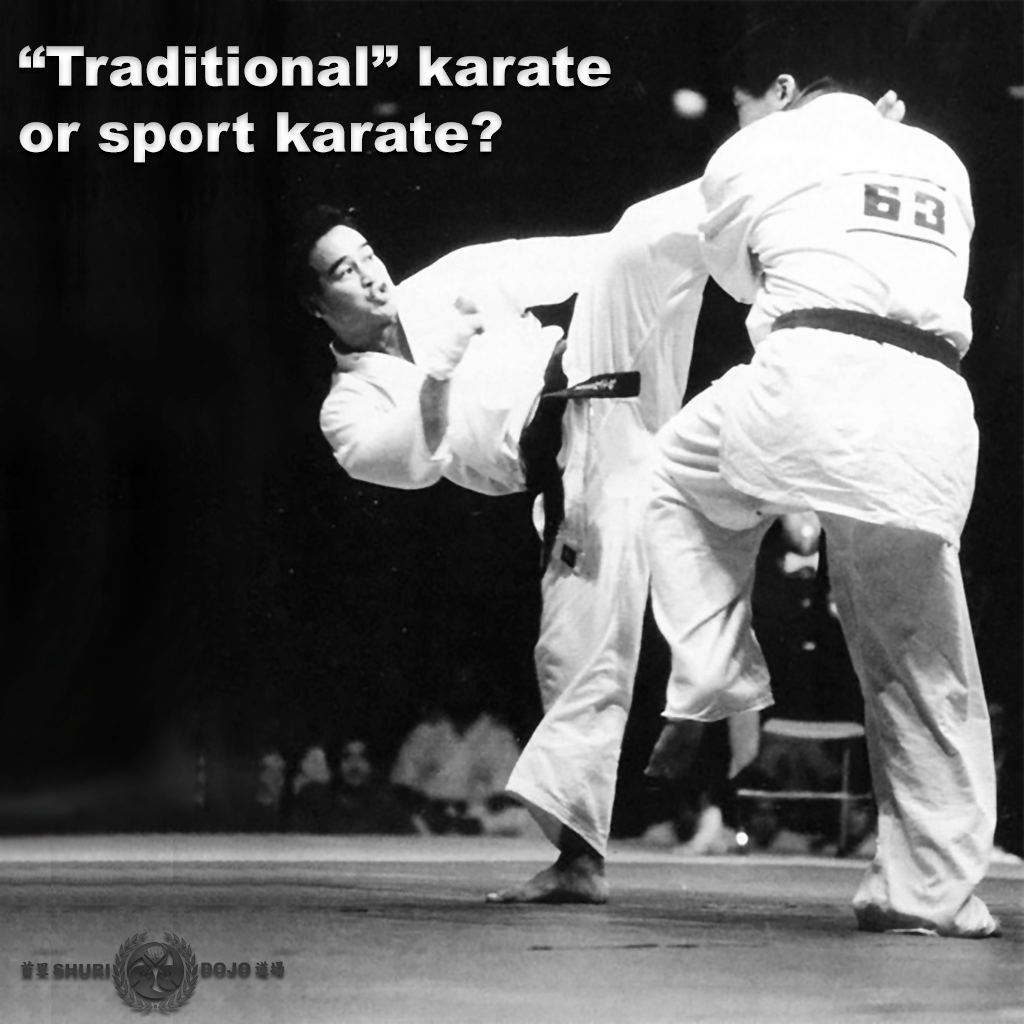
Since the development of sport karate, there have been mixed opinions on its validity as a true martial art. The sporting rules and culture is a far cry from how and why karate was originally created on Okinawa.
.
Today the traditionalist part of me says no to sport karate because the competitive philosophy of sport is the complete opposite of what makes karate historically significant. In real traditional karate (or classical karate), there is a development of the budo spirit which involves adopting a honorable life that is humble, with the appreciation of life and community. It is composed of lethal knowledge of self-defense strategies, principles and tactics.
.
Sport on the other hand is about the physicality of winning, rules that promote offensive and defensive play, and appealing to an audience.
.
I started karate in the 1970’s and loved sparring and fighting. Back then in the UK Okinawan Karate wasn’t as popular. The Japanese and western influences on karate propagated karate as a sport. My competitors became my friends and I really enjoyed traveling from competition to competition.
.
I remember having lots of fun and the positive impact it had on me. It wasn’t until a decade later when I was introduced to Okinawan karate that I learned that the original karate had deeper, profound meaning and purpose.
.
Even today many dojo on Okinawa promote themselves as “traditional” when in fact they are teaching sport karate. In many of the Okinawan schools, karate is on the curriculum, but again what is defined as “traditional karate” is in fact sport karate dressed as traditional.
.
Here is a small snippet of information from the Okinawa Karate Information Center on Okinawa about karate: “As karate was incorporated in the [Okinawa] school curriculum, one can wonder what the purpose of teaching karate to children is. The Okinawa Prefecture look at this purpose …[snip]…. “to train karate as a sport that develop a healthy physical body.”…….
.
Therefore from this we can see that “traditional” karate is in fact taught firstly as sport. And it seems that many of the children leaving school only get to appreciate the sporting aspect of traditional (classical) karate.
.
Is teaching sport karate as “traditional karate” a threat to real traditional (classical) karate? There is no doubt that both traditional and sport karate practitioners can exist, but can they coexist exclusive of each other, or do we have to morph into one type of “traditional karate”? ![]()
![]()
.
.
